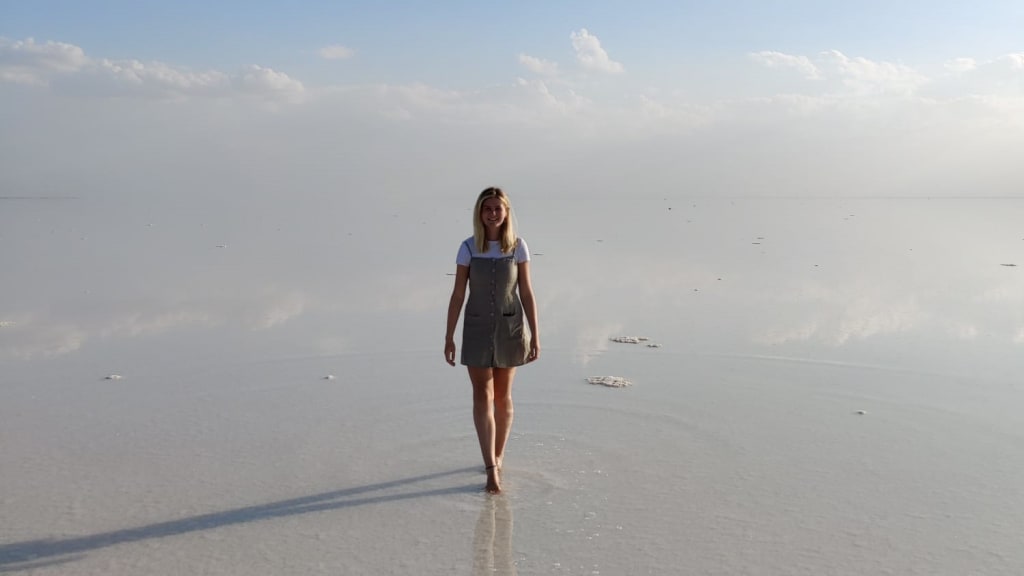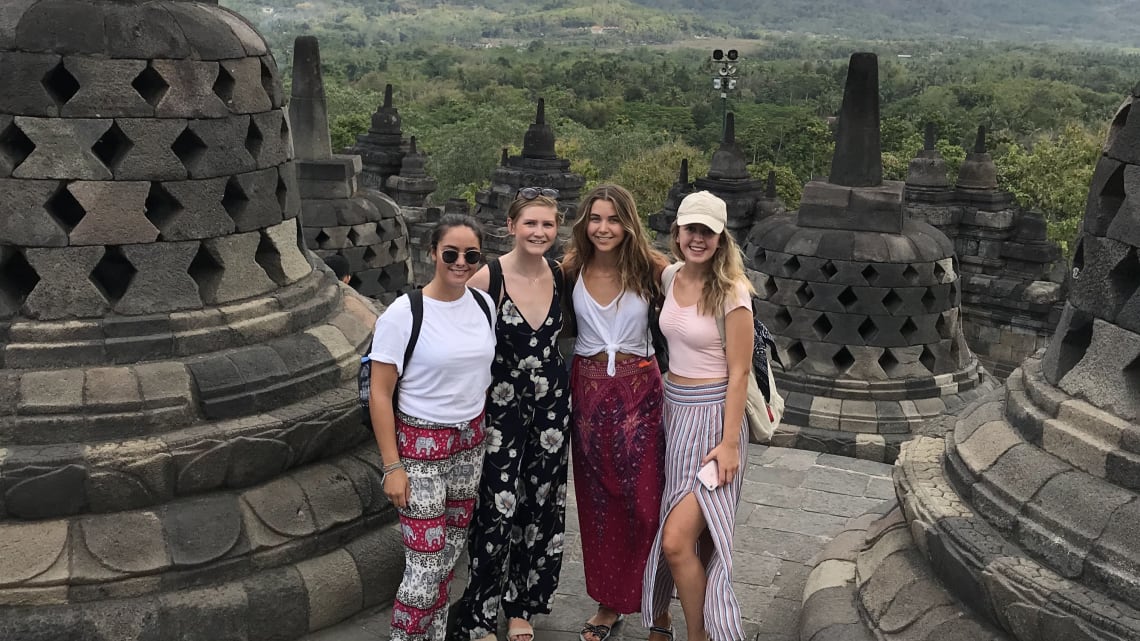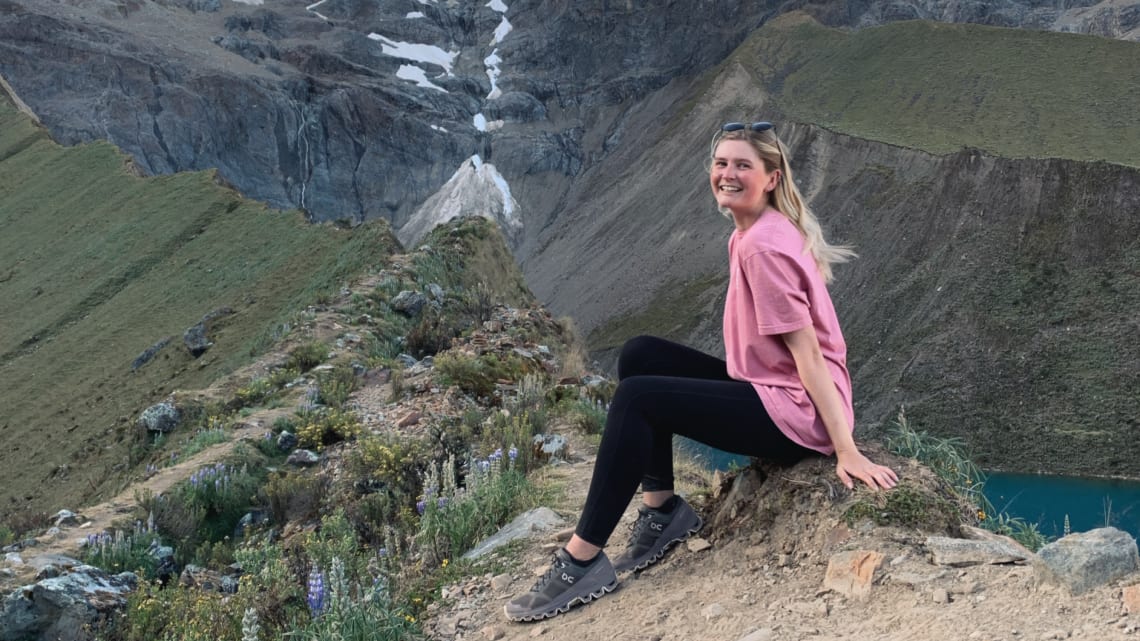Post-vacation depression: what is it and how to deal with it
Post-vacation depression is real. It can start creeping in at the end of your trip and annoyingly stick around once you get home. We'll talk about what it is, I'll share my experience with it, and give some tips on how to tackle it.
8min

What is post-vacation depression?
Post-vacation depression, also known as holiday blues, is that dread, sadness or anxiety that you can start to feel at the end of your trip or when you get home.
Returning home, there can be a lack of motivation to slip back into your daily routine. Wishing you were back scaling mountains, eating tapas, relaxing on beaches, or whatever it was that you were doing.
That feeling can be debilitating. Sometimes it’s all you can think about, and it can get you down. The transition back to normal life can be difficult enough, but throw in some unwanted negative emotions and it’s even harder.
It can manifest in lots of different ways: fatigue, lack of focus, isolation, anxiety, irritability or mild insomnia. Everyone experiences it differently!
Is post-vacation depression real?
Without a doubt, post-vacation depression is real. Ask most travellers what they’ve felt like when they’ve returned home from a holiday or a long trip, and they’re likely to describe feelings along the lines of post-vacation depression.
It's a real thing that we should all be talking about and supporting each other through because it’s not easy!
My experience with holiday blues
I’ve experienced post-vacation depression a few times. It happened after my first big trip, after weekend trips to Europe and right now as I've just got back from 2 years of travelling.
When travel runs through your blood and is what you love doing, it’s hard not to experience it.
But there are ways to cope with it, and that’s something that I’ve got better at doing as time has gone on.
Returning from my first trip

At the age of 18, I went on my first big trip! I packed my backpack and headed to Indonesia for a month with my three best friends. This was my first time travelling, and let’s just say it was love at first sight.
Once you start travelling, you quickly realise that there is so much out there to explore. That the world is a beautiful place filled with adventures, fascinating cultures and epic landscapes. I was hooked!
The month flew by, and I didn’t want to come home. Why would I give up this life of endless fun and learning, for a mundane life in a corporate job? The answer was that I shouldn’t, but rational, societal pressures and a good job waiting for me pulled me back home.
And then the blues hit! Badly! My head was a constant flurry of questions asking why I was here when I could be travelling. Had I made the right decision to come home? I even ended up crying in a nightclub, confused about what decision I should make. Thankfully I now know how to deal with these emotions better than 18-year-old Kate.
I started working as a Management Consultant, but the entire time it felt like something was missing. I would still go on trips, but it wasn’t the same as actually travelling, and every time I came back, the sadness and yearning to travel would get bigger.
These feelings continued until I finally decided to take a career break. I am extremely lucky that my company allows us to take up to 3 years of unpaid leave during your time with them. I knew that if I didn't get the travel bug out of my system then I wouldn't be happy. Although now I've discovered that no length of time is enough to satisfy this hungry bug
I decided that with the curve ball of COVID, 2 years would be a good amount of time.
After my 2-year career break

I only recently got back from my 2-year career break travelling the world! I spent a year in Latin America, both of my summers in Europe, and dipped my toe in Africa and Asia.
The trip was more than just travelling, it was my way of life! After that length of time, you get used to the ultimate freedom and lack of serious responsibilities. I was the only person who could decide where I wanted to be, when and with who. I was in charge of where I worked, whether it be in a beach club, a cafe or on a bus in Morocco.
Transitioning back to a ‘normal life’ wasn't easy, it was a complete lifestyle and mindset change.
Coming home, I was prepared for the holiday blues to hit me hard. I did spend the entirety of my last flight listening to songs that brought back memories from my trip and staring out of the window crying. But when I landed those blues didn’t overwhelm me like I had expected them to.
Something had changed
My perspective had changed. Instead of being sad it was over, I am incredibly grateful for the adventure I have been on and for the people I have met. What I had expected to be tears are often replaced by reminiscent smiles whenever I think of my travels.
Don't get me wrong, I haven't managed to escape the blues completely. They do still come in waves. I’ll be sitting watching TV and thinking that I could be eating tacos in Mexico right now, or camping on top of a mountain, but I’ve got better at dealing with those thoughts and emotions.
Here are some of the ways that I’ve dealt with post-vacation depression:
How to deal with post-vacation depression
In my opinion, I don’t think you can avoid post-vacation depression entirely. But you can learn and implement ways to reduce the severity of it, which in turn tends to improve your daily life at home. It's a win/win situation!
1. Make your life at home an adventure
Going home doesn’t mean that you have to go back to a boring life. Sure, you might have to work 9 to 5, but there’s plenty of time outside this to add adventures to your life and continue pursuing interests that you picked up travelling.
Did you love the food in a particular country? Try cooking a new recipe from that place every week. Did you go to Latin America and fall in love with salsa? (I did). Join a salsa class or dance the night away at salsa parties.
You can still have that taste of travelling at home. It just might take a bit more searching to find it and build it into your daily life.
Making a bucket list of things you'd like to do around your area and in your own country can help to keep adventure in your daily life. Some things to add to the list might be: completing a hiking trail near you, trying a new restaurant every week or volunteering for a local charity. Get creative!
2. Have something to look forward to
Keep the excitement coming! Having another holiday booked or an upcoming adventure helps to settle those holiday blues. Doing this means that you have something to get excited about and plan for.
It doesn’t always have to be big things either. It can be as simple as a weekend with your friends or going to the theatre.
Three things that I picked up whilst travelling were yoga, salsa and Spanish. I’m really keen to continue practising those skills, and I look forward to each time I get to do them. Whether it’s doing yoga in the morning or going to my salsa class on a Wednesday, every day I have something in my life now that takes me back to my travels.
I also like to book weekend trips to keep me going until my next big adventure. I can start planning the trip, booking my accommodation and building that excitement.
3. Try and keep in contact with friends you’ve made
This one is particularly important if you went solo travelling. One of the worst parts of solo travelling is that you experience these incredible things, but have no one to reminisce about them with when you get home.
Staying in contact with the people that you went on these adventures with helps to keep the flame and excitement alive. Whether it’s online or in real life, getting to chat with people who truly understand what you’ve been through massively helps with tackling the holiday blues. You still feel connected and understood, something that can be hard if your community at home has never been travelling.
I’m extremely lucky that I live in London and so do a lot of people that I met on my travels. My ‘travel’ friends have now become the friends that I hang out with at home.
One way I made life-long friends was by volunteering. I spent 5 weeks teaching English in Colombia. That was almost a year ago and I still talk to the people I met there. We often reminisce about the fun we had and the impact we had on our students.
4. Apply a different perspective to your memories
It’s easy to think about all the things you're missing out on when you return home from travelling. Your heart yearns for what you had before.
Instead of being sad about not having these things right now, be grateful that you got the chance to experience them. Practising gratitude for your time travelling and for your life now is extremely useful for telling those holiday blues to go away.
Focus on the things you’re grateful for at home — your comfy bed, seeing friends and family again, not living out of a backpack, etc. Try writing a list and you’ll realise there are plenty of things to be grateful for.
5. Embrace your feelings and emotions (yes, even the bad ones)
Feeling sad, depressed or anxious about returning home is a common thing. Lots of people go through it and it’s important to accept what you're feeling. Trying to bury and ignore them will get you nowhere.
Let yourself feel the emotions and try to talk about them. If you’ve made friends whilst travelling, reach out to them. They’re probably feeling the exact same way as you and they'll be able to relate.
The other day I sat and looked through all of my photos and videos from my 2-year trip. I cried and that’s okay! I got sucked into the black hole of wishing that was still my life, but those feelings went away by the next day and after I'd chatted with some friends.
Bonus tip: immerse yourself in what you miss
When I get back from somewhere, I love to still immerse myself in that culture. That might mean creating a playlist with all my favourite songs from that country or watching movies and series from that place.
Watching travel vlogs on Youtube can also be a good way to transport yourself back there, and experience it from someone else's perspective.
Missing the food? Find a restaurant near you that serves the traditional food that you miss. Or get creative and cook it yourself! There are plenty of recipe videos on the internet.
Key things to remember about post-vacation depression
Remember that it probably wasn’t the last holiday or travelling that you’re going to experience. Start looking forward to what’s coming next, and in the meantime look back with gratitude at the incredible memories that you have created!
Allow yourself to feel those emotions, and reach out to people who will give you the support you need.
That’s where social media can be a beautiful place to connect with other like-minded people and travellers. Consider joining Facebook groups, connecting with travel accounts on Instagram and becoming part of the Worldpackers community.
You can follow Worldpackers on social media to keep up with all things travel-related and connect with other travellers: we are on Instagram, Tiktok and YouTube!












Han
Dec 28, 2022
🤩
Shahidul
Dec 30, 2022
💗💗💗🙊🙊🙊🙊💗💗💘💘💘💘
Mohammed
Jan 03, 2023
🙏
Ghassen
Apr 23, 2023
☝️
Soukaina
May 08, 2023
🤲🏻🤲🏻🤲🏻🤲🏻
Salah
Aug 02, 2023
♥️